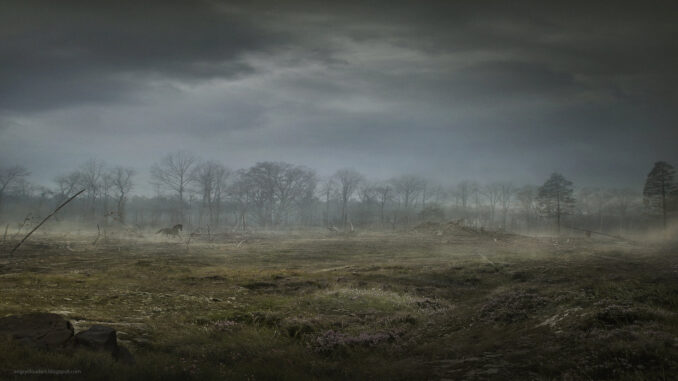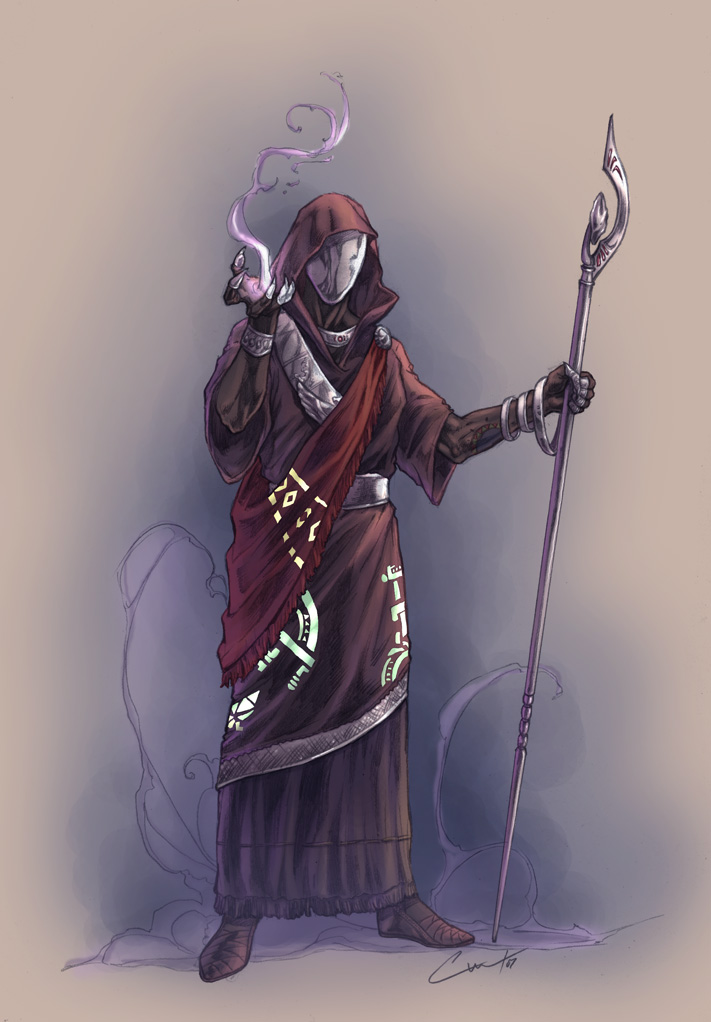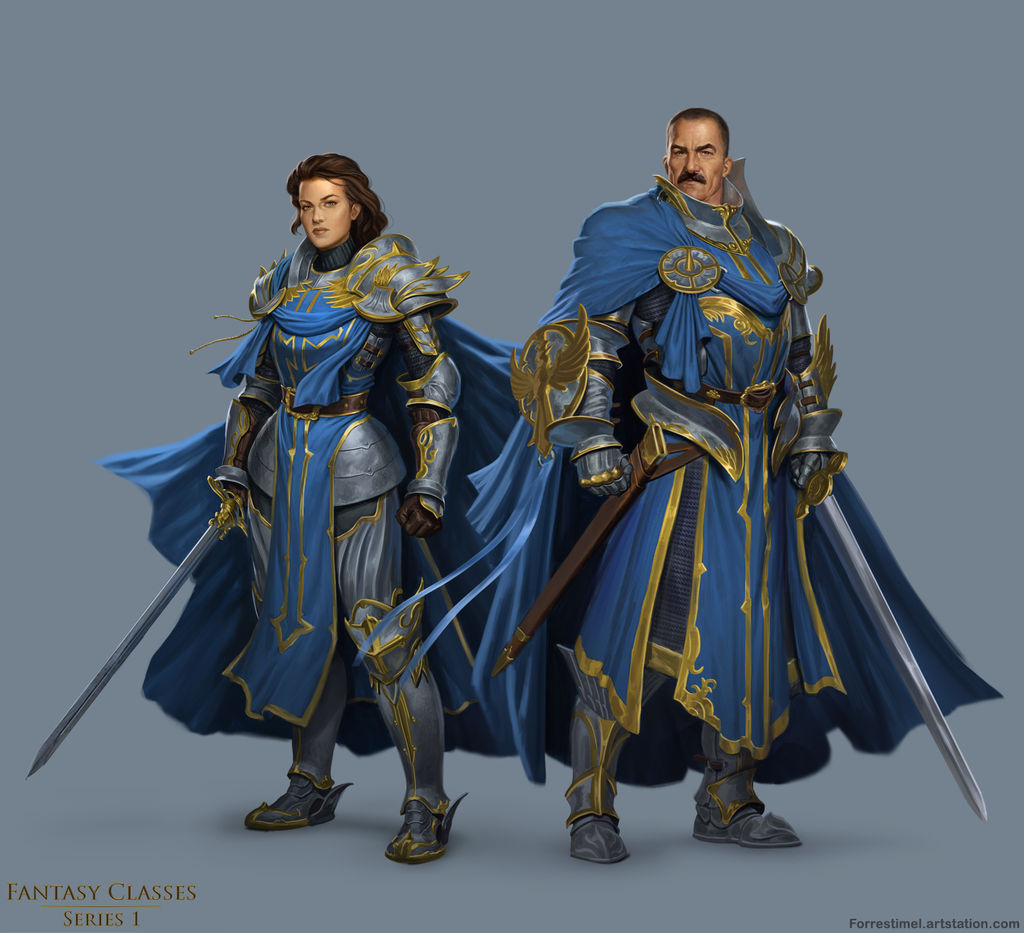
A few weeks ago I saw a meme that prompted this weird little thought in my head – in your standard Dungeons and Dragons type of heroic fantasy setting the gods are more often than not benevolent beings, if somewhat petty and above humanity and it’s struggles. There are often “evil” deities but they tend to be if not in the minority, at least they stand in equal opposition to the “good deities.” But what if that weren’t the case? This idea bit hard and wouldn’t let go and this idea for a campaign setting came out of it, drawing influence from a number of dark fantasy settings including the worlds of both Dragon Age, The Witcher, and even more recently, HBO’s Watchmen series –
The world used to be whole and relatively peaceful. But a cataclysm brought on by jealous gods centuries ago robbed millions of their lives and normalcy from the rest of the world. Fallout from The Event still infects much of the land, making places that can support crops and livestock rare as it literally poisons the land and makes it unable to support life.

Over time, the surviving people of the realm consolidated their populations to the small area of remaining arable land in the center of the realm. And as so often happens when so many people of different ancestries and backgrounds are forced together in a situation with very limited resources, fights happened. And these fights escalated quickly, growing from small skirmishes to full-on battles. As these various groups maneuvered and struggled with each other, alliances were formed and borders were drawn. After several years of brutal and vicious fighting, they signed an armistice and drew up borders to divide the land among the six largest groups that survived the fighting, absorbing the rest of the people into these new civilizations. These six kingdoms are now the bright fire of civilization that burns within the heart of the realm. There are small pockets of people that still try to carve out a living in the lands outside of these kingdoms, but those communities are few and very far between and tend to fail long before they could become viable – but a few exceptions do exist to prove the rule.
The people turned their backs on the gods that remained after The Event, finally seeing them for what they were – jealous and petty creatures that did not have their best interests at heart. And in the years after the founding of the six kingdoms, the gods grew jealous and attempted to force subservience on the people of the realm. Instead of falling in line, the people resisted. Powerful spellcasters created a ritual to give a certain number of people the ability to draw the power these beings possessed into earthly channels, preventing the gods from being able to access that power themselves. The creation of that ritual is the only thing that allowed the six kingdoms to stand against, defeat, and imprison the gods. Of course, this created a new problem – an entirely new class of individuals that possessed a small measure of the power of the gods within them that they were able to control to greater or lesser degrees. But their existence was necessary in order to keep the gods imprisoned and unable to take their revenge upon the six kingdoms, and so they continued to exist through the centuries.
One would think that these channels would be considered important people within the six kingdoms. They are instead, often feared and misunderstood. After all, if the gods are known to be petty and vengeful creatures, and if the channels are drawing that power into themselves, shouldn’t they eventually become the same? And indeed, there have been numerous cases of channels succumbing to the darker sides of their power and having to be cut off from their investiture or at worst – hunted and put down. All this means is that those individuals who desire to take that burden on themselves by their own will are rare indeed. At least several of the kingdoms have elected to make undergoing the process a conditional form of early release for certain classes of prisoners which of course only further drives the stigma surrounding them. But this group is so important to the continued survival of the six kingdoms that they are offered numerous protections.
They tend to wear clothing and masks that obscure their identity and dwell in monasteries where they can focus on perfecting the use of their powers. These monasteries are defended by a group of highly trained soldiers that swear allegiance to no one kingdom or ruler – instead they exist to defend the channels. This “clerics’ guard” defends the monasteries, makes sure the needs of the channels housed within are met, and travel as an honor guard should it become necessary for a channel to leave on a journey. But they also serve as a police force, hunting down renegade channels and stripping them of their powers should it become necessary. As such they exist in a rather dangerous place in the world, trusted neither by the channels they are sworn to defend or the rest of the six kingdoms.

All the while, the six kingdoms continue to struggle to meet the needs of their citizens as population levels continue to climb as things continue to reach their “new normal.” It’s going to become necessary for them to expand their borders sooner rather than later, but how can they do that when there’s only so much land available to them? There has to be a way to reclaim the land that was poisoned by The Event, but the best and brightest minds in all six kingdoms have been unable to figure out a way yet.
So what kind of stories would you tell in this campaign setting? And what game system would you use to tell those stories?
